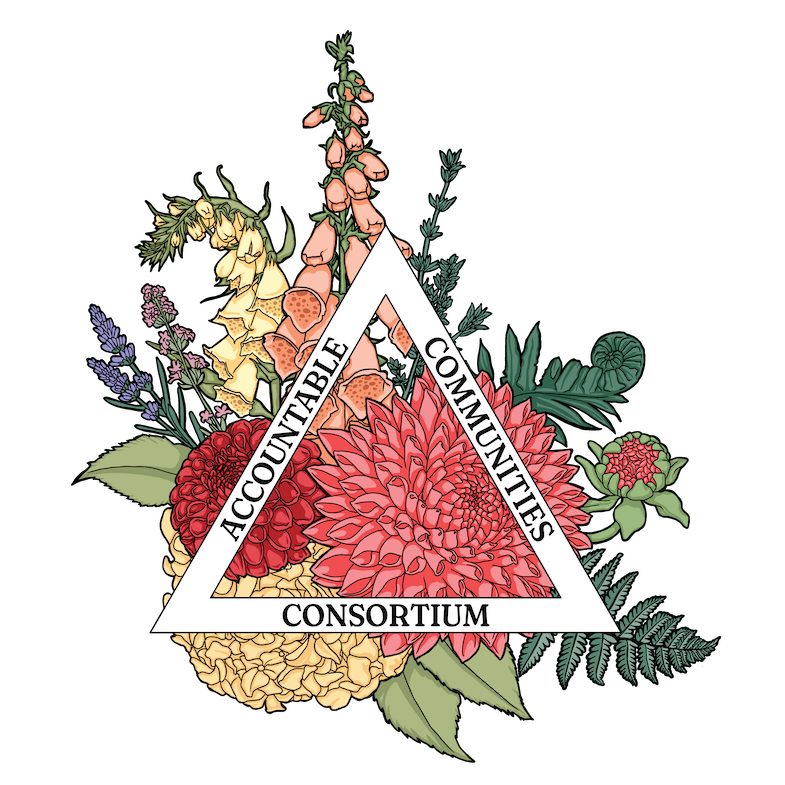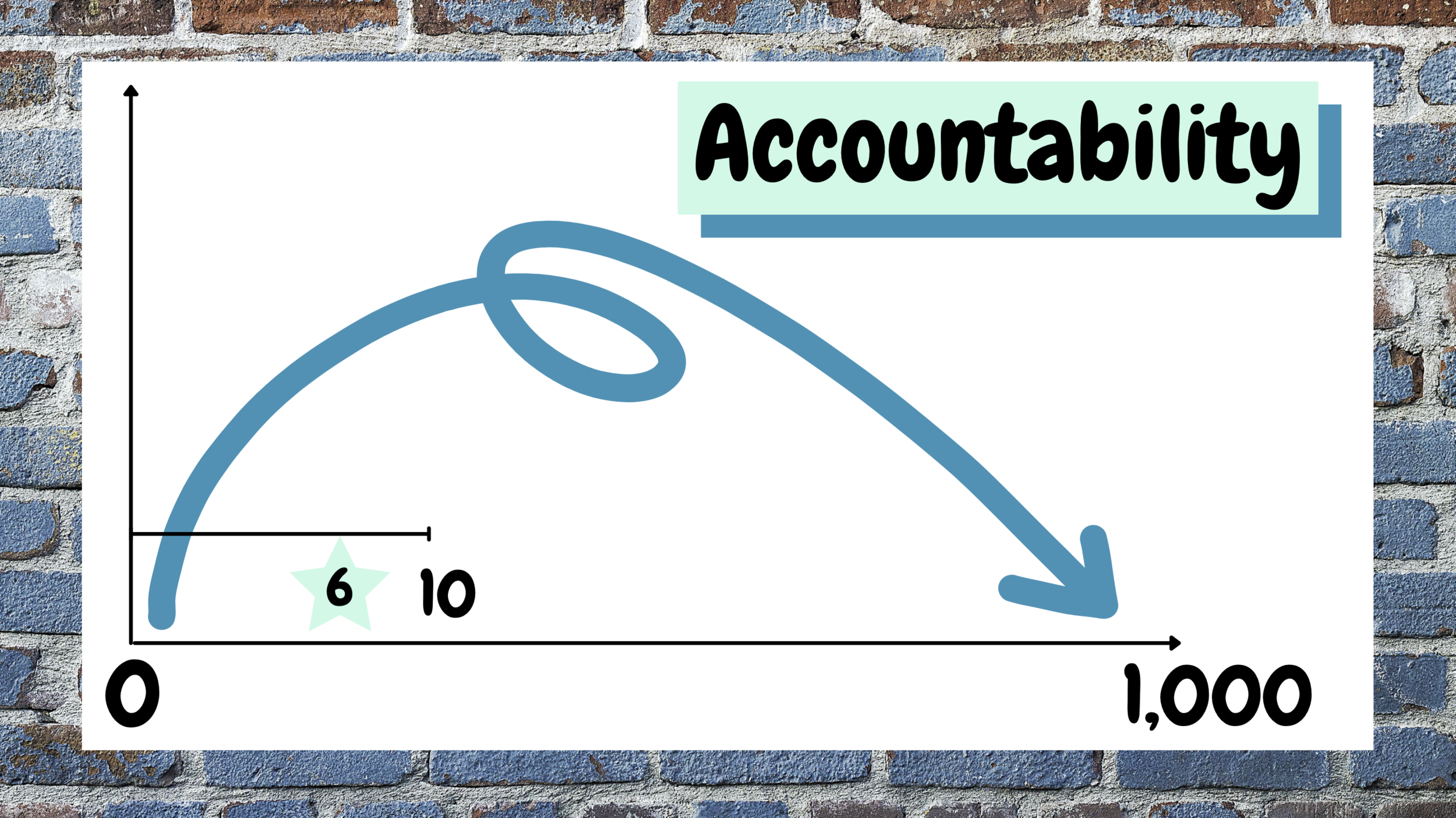Centered Self-Accounability
By Shannon Perez-Darby*
Centered self-accountability requires getting to that grounded, rooted and balanced place from which to make observations about what you did so you can make decisions about what you will do in response to the situation, what you will take responsibility for and how. It’s about asking yourself these questions:
What happened?
What was going on for me at the time?
What am I going to do about it?
We all want so badly to do it perfectly, to be people who will never mess up so that we would never have to be the ones who were wrong, we want people to apologize to us but we often struggle in being the ones who need to apologize. Doing the work of accountability is hard, it can be uncomfortable and scary to do the work of looking at yourself. To avoid this work people want to figure out how they can be so perfect that they’ll never have to mess up and be the ones who have to apologize. They want the magic equation of accountability, where if they are always doing the “right” thing they will never have to be accountable. Perfectionism is a trap, overly focusing on perfection does not allow us do the grounded work of looking at our own actions and behaviors and figuring out what we did, was it aligned with our values and if not, what we are going to do about it. We don’t need perfection, we need humility, practice and skills.
Centered accountability is more than just “being wrong” and apologizing for it, it’s also proactively doing our work, it’s the building blocks to connection with others, to joy and excitement, to building equitable relationships and to having the skills where violence and abuse are obsolete and where we all have built the conditions to support loving equitable relationships and communities.
Zero to 1000
When building our skills towards centered accountability it can sometimes help to start with what accountability isn’t. Think about a scale from zero to 10. That scale is all of the ways, when you are grounded and clear, that accountability is possible and likely. First is what we will call “Zero” being at your zero is when you are taking zero responsibility for your actions and their impact. This can sound like “I don’t know what you’re talking about,” “that has nothing to do with me,” “ you’re blowing things out of proportion.” “Zero” is all of the ways that we cannot or will not take responsibility for our actions and behaviors. This is what most people think of when they think of not being accountable.
Next we have “1,000.” Remembering that our scale is 0-10, being at your 1,000 is taking far more than your fair share of responsibility. It’s going above and beyond what is reasonable or even possible for you to be responsible for, it’s taking 1000% of the responsibility. Being at “1,000” is another way of avoiding responsibility. It involves an overexaggeration of your role and it’s impact. Being at your “1,000” often looks like, “Oh my god, I’m so soooo sorry. You must haaaate me, I’m a terrible person. I can’t believe I was late again. You hate me don’t you? Of course you hate me, I’m the worst.”
This is not accountability. The “1,000” can be deceptive because it is filled with words like “I’m sorry” and “It’s all my fault” but without a grounded and proportional sense of your actions and their impact.
When our loved ones say things like “I’m a terrible person, you must hate me” especially for something as common as being late or not doing the dishes, it is natural to respond by comforting them, by relieving them of the guilt of “being a terrible person.” What the “1,000” does is keep the focus on the person doing the harm. It’s a way to keep the focus on you and not the impact of your actions. Rarely do we live in just the “zero” or just the “1,000.” It’s common for people to jump back and forth between the two.; between shame, guilt and denial.
Finding Your Six
Returning to the 0-10 scale, we call this processes of grounded, personal accountability, finding your six. The number 6 is not arbitrary. If 10 is the most possible effort you can put in the six reminds us to be humbled and right-sized about where we are and what is possible. It’s to remind us that perfection is not the goal or even a possibility. We do this to honor our imperfections, knowing that the perfect 10 is unlikely and even desirable. Centered accountability is not defending yourself or taking on more than your share of responsibility. Accountability means figuring out what you did, why you did it, and what you are going to do about it.
Finding people who can support you to “find your 6” and can support you in holding yourself accountable to your values is an essential part of centered accountability. Some people who are close to you might be very loving and supportive towards you but won’t necessarily help you find your honest truth in a situation. It is tricky because often your friends can actually keep you bouncing from your “0” to your “1000” rather than helping you take responsibility for your part in the situation. Friends may hear you at your “1000” and want to save you from what they see as self-blame and self-deprecation by releasing you from all responsibility, thereby bringing you back to your “0.” It’s rare that a friend will say, “You know, you’re not a terrible person, but you do have a pattern of doing [that thing] and you might want to look at it.” It is helpful to have people in your life who are willing to challenge you, people who can help you identify when to let things go, and people who will be proud of you for doing something hard. Having many support people can be helpful because different people will bring different types of support. A broad support system can help counteract the myth that just one person should be able to do it all.
For more resources on how to locate the skills of centered self-accountability in your body check out Accountability Mapping’s Centered Accountability course.
* This tool was built over many years in collaboration and relationship with a number of people including Danica Bornstein, DeAnn Alcantara Thompson and Connie Burk.

